
Pakistani society, in the perspective of telefilm 'Ruposh'
The most beautiful thing about a new telefilm called Ruposh , which is in stark contrast to other Pakistani dramas and films, is that it not only revolves around the traditional love-hate tale the entertainment industry thrives on but also focuses on serious issues in society, such as the devastation of a child's life due to parental disputes, the marginalized status of women, the plight of the poor and the ignorance of the government, plus the fake power of money.
It also focuses on the idea that there must be a feeling of empathy, good character, and a touch of softheartedness along with the money/wealth, otherwise, the money may become a Frankenstein monster for the owner.
After a long time when such was not the case, a Pakistani telefilm has gotten immense ratings not only on YouTube but also on IMDb and other social-media platforms. Ruposh is record-breaking Pakistani romantic telefilm produced by 7th Sky Entertainment that was released on January 7.
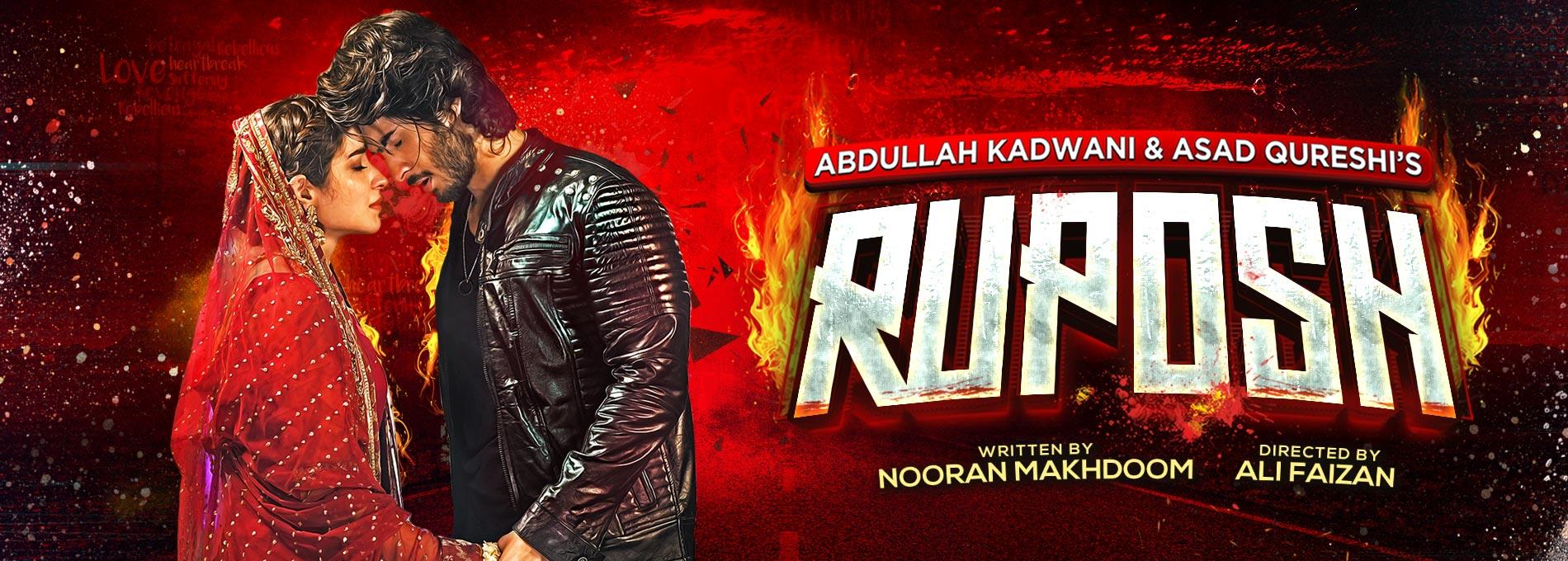
Ruposh telefilm official poster. Source: Har Pal Geo
A large number of people in Pakistan, India, and other countries around the world are watching this telefilm, which can be guessed from the fact that in just seven days it got 23 million views on YouTube (and 58.5 million in two weeks), and a 9.6/10 rating on IMDb.
The original sound track also attracted an immense viewership, with up to 16 million views on YouTube in one month.
Whether it's the characters, the story writers or the producers, everyone has done his or her job well and performed their role in the best possible way.
Ruposh is an Urdu word that means“hiding the face; absconding; being externally one thing and internally another.” The telefilm Ruposh is available on YouTube with English subtitles and can be accessed here .
The film's story typically revolves around the class differences of Pakistani society, and how the lives of children in the higher and elite classes in particular, because of their parents' disagreements, are negatively affected. Their character is off to a bad start and gets worse when they see everything in terms of money and power.
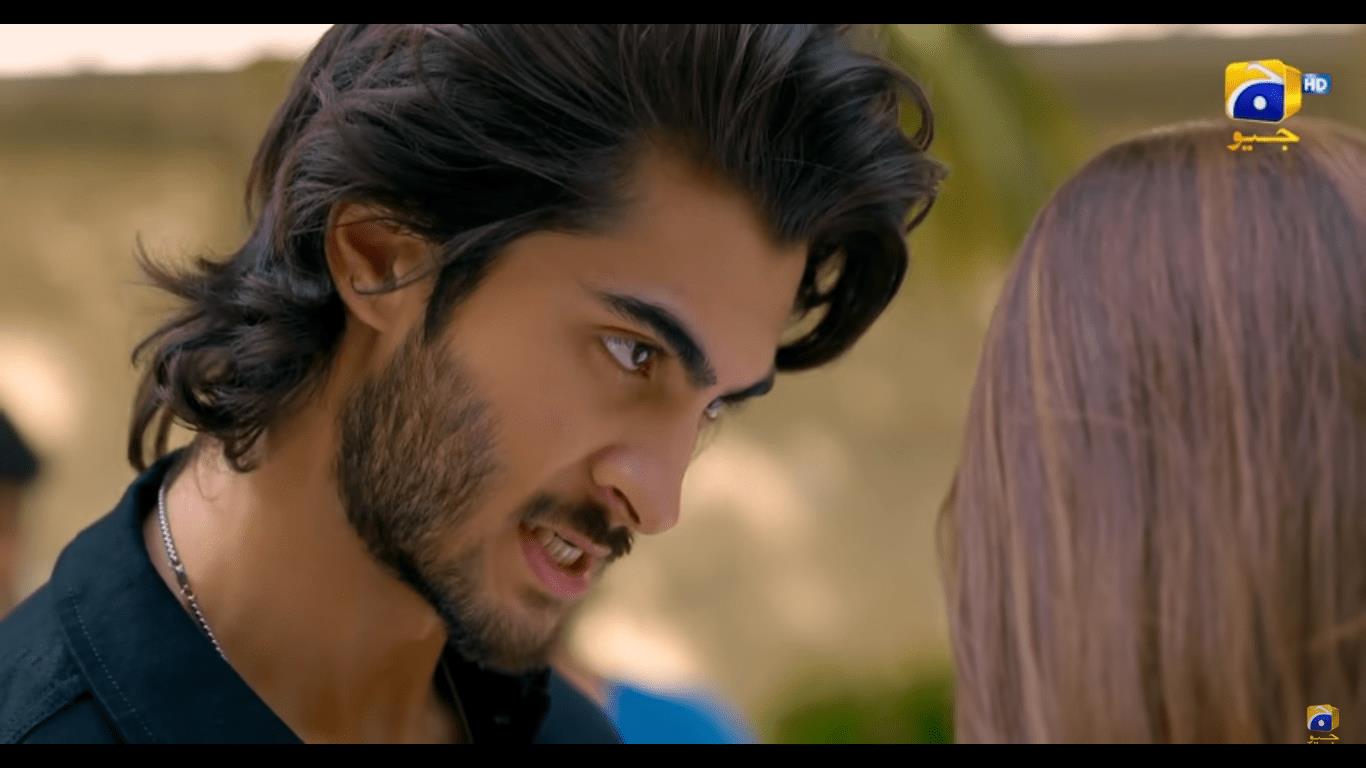
Salar Shah playw with Zooni's emotions, leaving her disgraced in front of other students. Screenshot: Ruposh Telefilm on Har Pal Geo, YouTube
In addition, women are generally considered as marginalized beings whose job is to act on what the“elders” want, whether it's about their life in the house or their choice of marriage.
The charactersSalar Shah, the leading male role played by Haroon Kadwani , is a well-known student and a popular guy at university who belongs to an upper-class family, known for his haughty and arrogant demeanor. He carries some harsh experiences regarding his family due to his parents' clashes with each other, and that's why he is now living away from their home.
On the other side, Zunaira aka Zooni, the leading female role played by Kinza Hashmi , is a candid middle-class girl in the university who is seriously focusing on her studies and endeavoring to change the fate of her family.
It is said that people who live in closed rooms with all the comforts of life available to them find the outside world strange as if they have come to an inscrutable world where everyone is trapped in their grief and struggles for life and yet are content with what they are doing.
They are busy day and night making their life, in this world, possible. This theme is beautifully illustrated with a perfect scene in Ruposh.
When a bus reaches Salar and Zooni, who are waiting for it at a bus stop, the manner in which the people get on and off the bus may be“feral” for some. As Salar says,“What kind of wild people are these, how are they getting on the bus?” And the answer reveals a fact that might make everyone think.
“These are poor people, the working class … that's their life,” says Zooni. And there is much to be done to change their lives.
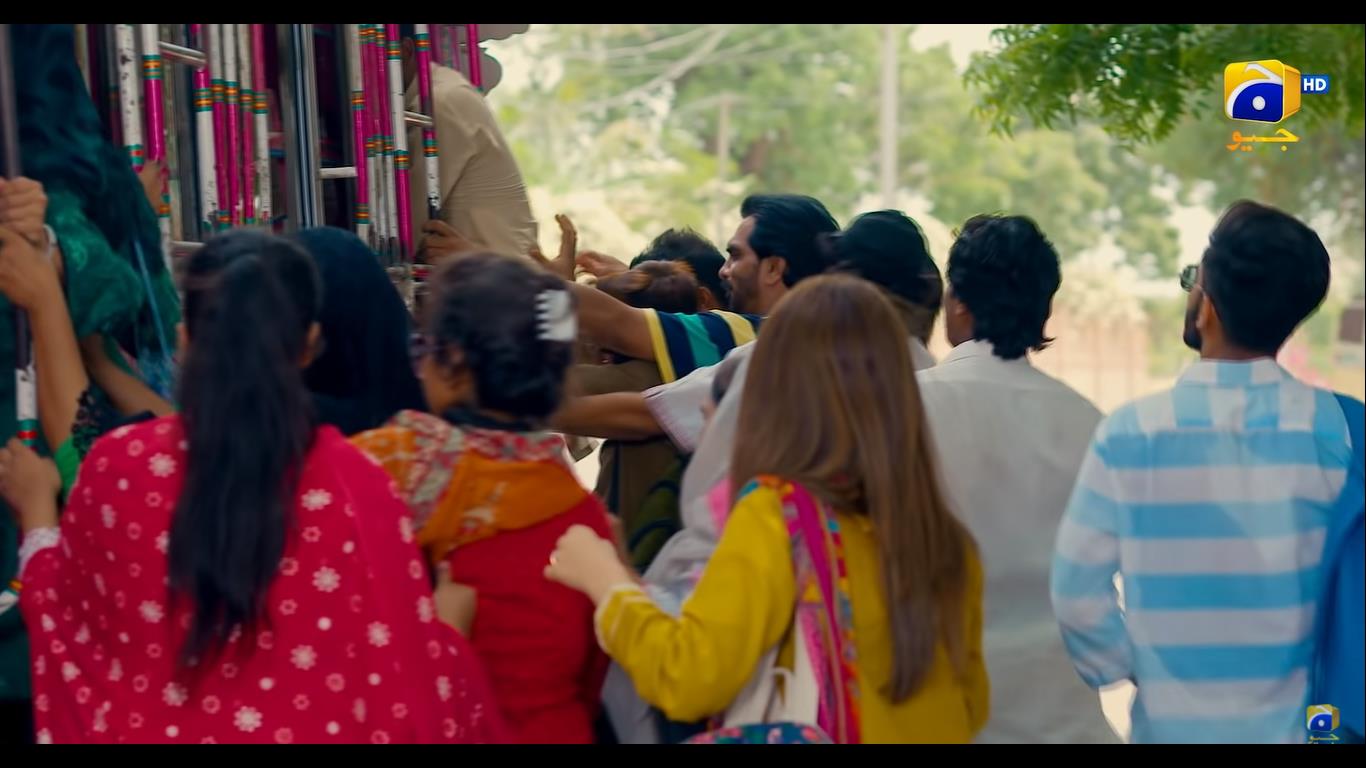
Bus scene from Ruposh. Screenshot: Ruposh Telefilm on Har Pal Geo, YouTube
Maybe they are wild in Salar's eyes but their parents will not be like Salar's parents at all. Rather, people like Salar do not know what kind of life the poor are going through for their daily bread.
Their only recourse to change their lives is government aid. But when the government is so preoccupied with its own affairs that it becomes difficult for the poor to get access to the government institutions and office-holders, then the plight of the poor reaches such a stage that they appear“wild” to those living in power and comfort.
The performancesThe most difficult scenes for actors in any film or drama are the extremely sad ones. Zooni's success in this hard stage is second to none. Looking at the last scenes of the film, it seems as if all this is happening right in front of your eyes and you are living in the world of Salar and Zooni.
It looks like the best performances of these two have enchanted you and taken you to the fairytales where these love stories have become a reality. And this is the reason so many who watch Ruposh are fascinated by it and is moved to tears, which is proof of the excellent performances by the actors.
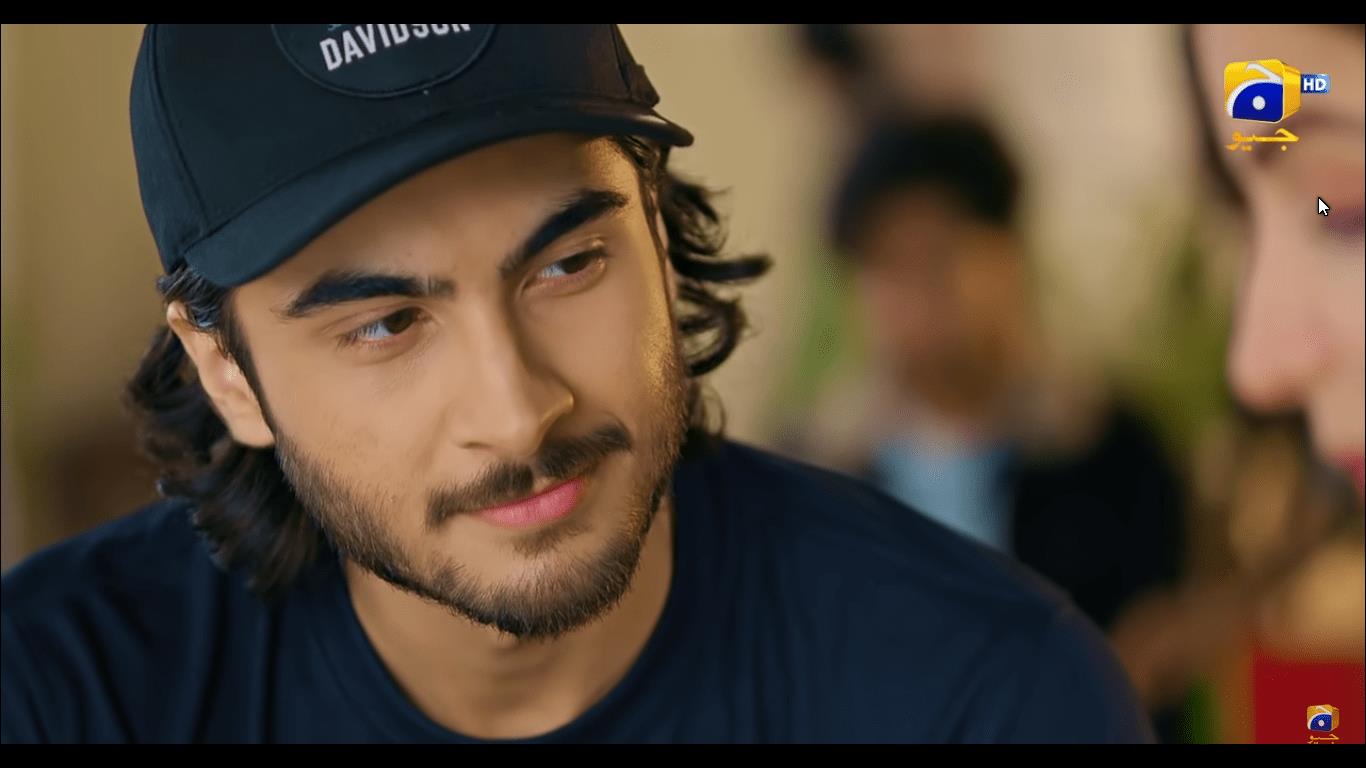
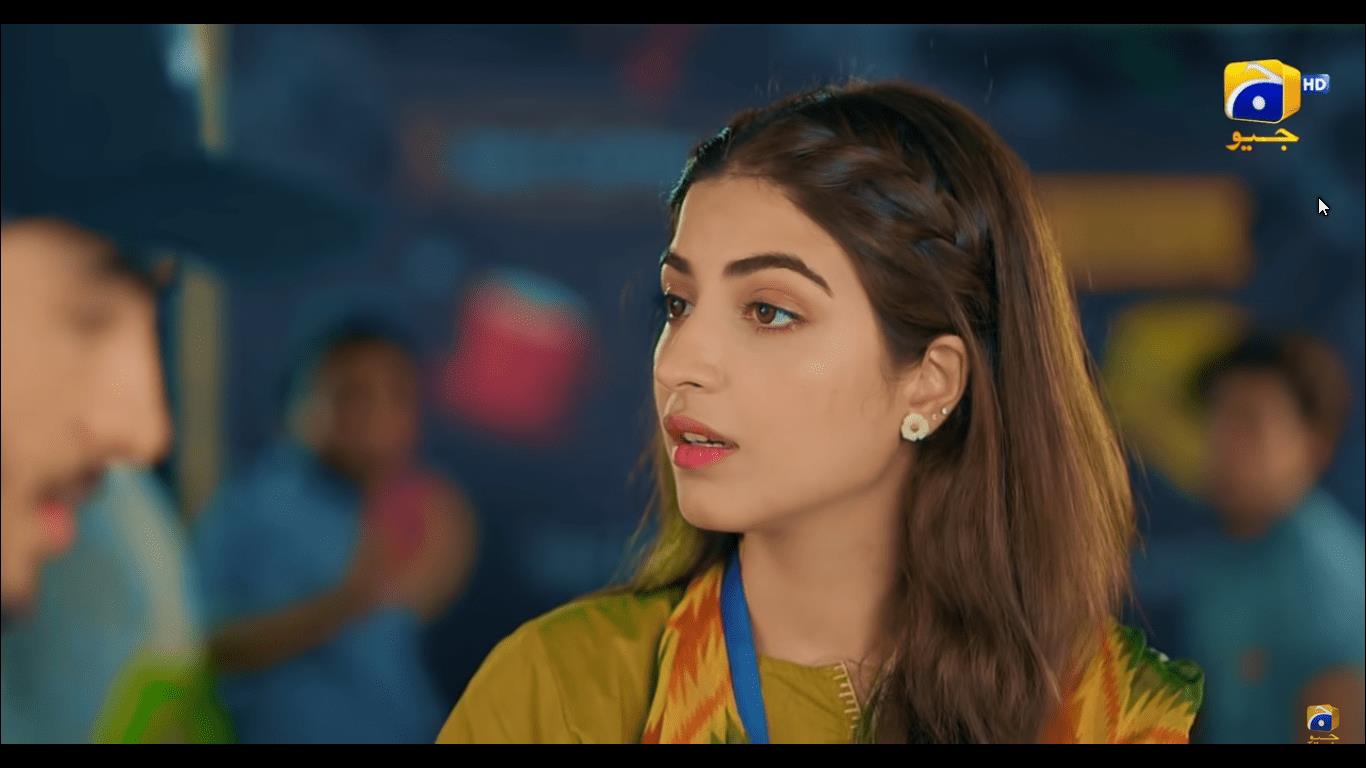
Salar and Zooni looking at each other. Screenshot: Ruposh Telefilm on Har Pal Geo, YouTube Powerful messages
A girl, whether a sister or a daughter, has the same right to live in this world as a man has, whether he is a father or a son. A girl has come into this world the same way and from the same source as a man has.
Forbidding a girl to have an opinion, putting forward your words without asking her, and saying“she is my daughter, she knows how to respect her father” is not parental responsibility but cowardice and a sign of oppression. Just as a boy is asked about his choice, a girl has the right to be asked about her choices before marriage so that she can live her life the way she wants.
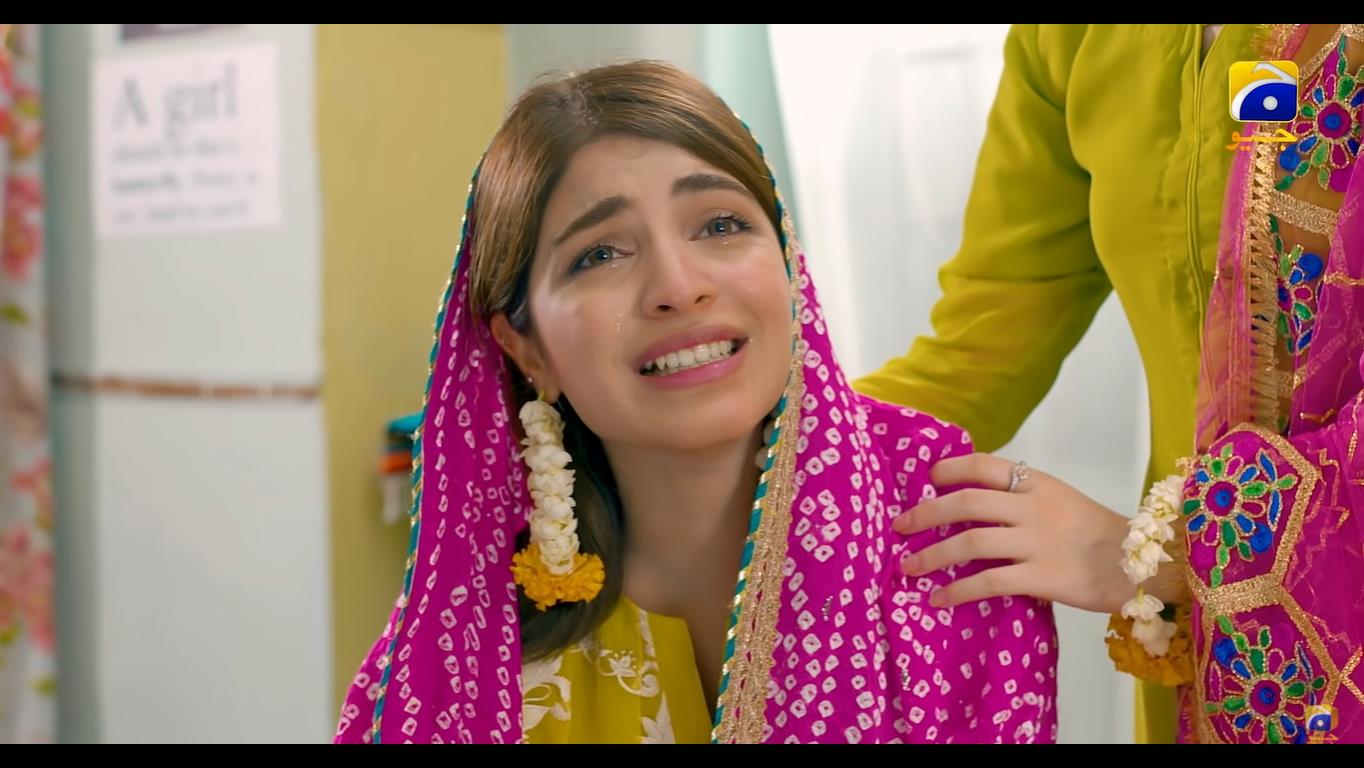
Zooni (Kinza Hashmi) marries at the will of her parents and leaves her own choice behind. Screenshot of Ruposh Telefilm on Har Pal Geo, YouTube
Ruposh is the best Pakistani telefilm I have ever watched and its popularity continues to grow. I'm hoping for more of this kind from Pakistani producers that will closely highlight the internal and external issues of society.
Follow Syed Attaullah Shah on Twitter @SyedAttaullah96

Legal Disclaimer:
MENAFN provides the
information “as is” without warranty of any kind. We do not accept
any responsibility or liability for the accuracy, content, images,
videos, licenses, completeness, legality, or reliability of the information
contained in this article. If you have any complaints or copyright
issues related to this article, kindly contact the provider above.

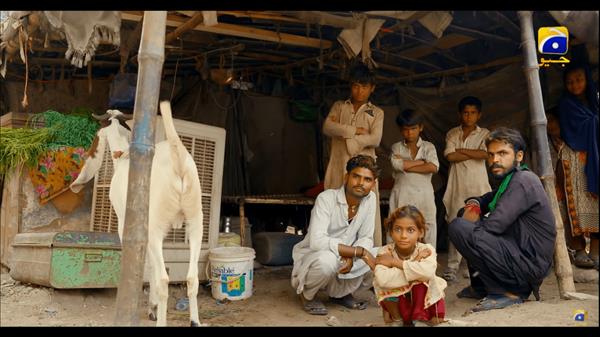
















Comments
No comment